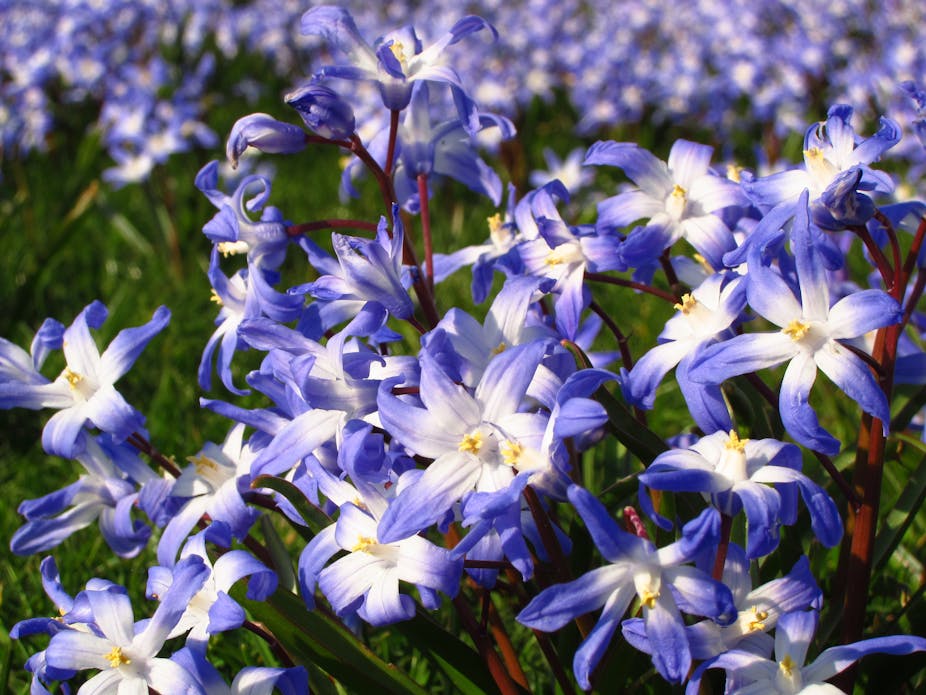There has been a bit of a kerfuffle down at the village hall. Has the vicar cheated in the beetle drive again? Or has Miss Perkins’s fabled home-made jam turned out to be Hartley’s? Worse still, I’m afraid: soporific, Sunday-afternoon staple, Gardeners’ Question Time, has been exposed as a front for insidious racist views.
Sociologist Ben Pitcher suggested on BBC Radio 4’s Thinking Allowed programme that Gardeners’ Question Time functions as “a solution to a crisis of white identity”, and as such is “layered with, saturated with, racial meaning”. He draws particular attention to discussions of native vs non-native plant varieties as a sort of proxy for more overtly unacceptable forms of “othering”.
This rather sober and earnest radio broadcast unleashed a tsunami of spluttering into teacups and a hailstorm of grumpily crumbled Malted Milk biscuits. Presenter Bob Flowerdew (with a name like that he couldn’t have any other job) described such suggestions as “ridiculous”. Fellow presenter, Stefan Buczacki, was left “speechless” before writing at considerable length in the The Daily Mail. So, is the radio show a bed of roses or a rampant blight in the BBC garden?
All forms of specialist discourse, horticultural or otherwise, rely on metaphor for their terminology, and few more so than my own subject of linguistics. All those troublesome technical grammatical terms started life as simple metaphors. So a conjunction for the Roman grammarians was just a word which joined one bit of sentence to another (con-iunctio) and an interjection was a word literally thrown between (inter-iectio) other words.
In the 19th century, fuelled by Darwinism, a whole anthropomorphic discourse for describing language grew up, allowing for language birth, language death and even language suicide, as well as language families and sister languages, not to mention mother tongues and native languages. Linguists are quite aware of the historical provenance of these terms, and they can indeed give rise to problematic ways of thinking, like the “death” of a language being somehow equivalent to the death of a living species. But we’ve got to talk to each other using terms which make sense, and who’s going to bother digging up the language landscape if it’s not doing anyone any harm?
In some cases this metaphorical usage can be more problematic, however, and it is true that it can be difficult to draw the line. In a recent book, Stephanie Hackert does demonstrate convincingly that the ideal of the “native speaker” has had an impact on what sort of models of language we find acceptable, to the detriment of others. This affects the social and professional status of real people, and that matters.
But frankly, in terms of plant species, “native” is just easier for normal people to understand than “autochthonous”, and it is not fruitful to weed it out, root and branch or otherwise. So leave Gardeners’ Question Time alone. It’s fantasy radio, an oasis of calm in our hothouse world.
I for one can’t say I really listen on a sleepy Sunday afternoon to learn how best to fertilise my dahlias any more than I watched The Review Show (God rest its non-literal soul) of a booze-fuelled Friday evening to learn what books to read. Gardeners’ Question Time lets us revert to the mythical world of our great aunts’ cottage gardens for a moment, just as The Review Show allowed us to pretend we were pontificating polo neck-sporting undergraduates. This is escapism, pure and simple.
I’m writing this in France where I’m tacitly living out centuries of the Anglo desire to annexe French land and culture and reinforce entrenched national identities, but it’s August and I’m on holiday, so leave me, my châteaus, my croissants, and my harmless radio and TV fantasy world alone.

